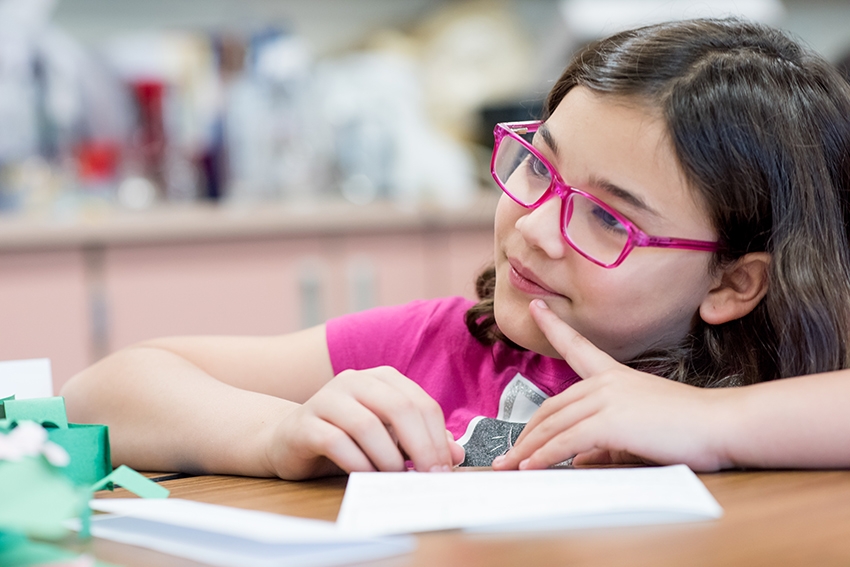
Welcome to another installment of IgnitED Research Insights, which aim to build stronger connections between learning science and instructional practice.
You probably already know that the best way to get information into long-term memory is to “retrieve” it, or periodically recall it or bring it to mind. This is why many of us mentally rehearse information that is important to remember.
Storing information in long-term memory is one step in the process of learning, and this same cognitive mechanism of retrieval works to help students learn too.
Let's Face Facts

For at least 100 years, researchers have documented the fact that taking a test or recalling material leads to longer-term learning. This finding has been replicated in children and adults; in a wide variety of settings and content areas. In the last decade, this “testing effect” has been found to be due to the process of “retrieval,” or calling information to mind. Retrieval, when combined with spacing (the practice of intermittent retrieval, over days or weeks), and feedback, is the most powerful practice that we know of for ensuring long term learning.
- Adesope, O. O., Trevisan, D. A., & Sundararajan, N. (2017). Rethinking the Use of Tests: A Meta-Analysis of Practice Testing. Review of Educational Research, 87(3), 659–701. https://doi.org/10.3102/0034654316689306
- Fazio, L. K., & Marsh, E. J. (2019). Retrieval-Based Learning in Children. Current Directions in Psychological Science. https://doi.org/10.1177/0963721418806673
- McDermott, K. B., Agarwal, P. K., D’Antonio, L., Roediger, H. L., III, & McDaniel, M. A. (2014). Both multiple-choice and short-answer quizzes enhance later exam performance in middle and high school classes. Journal of Experimental Psychology: Applied, 20, 3–21.
- Roediger, H. L., III, & Karpicke, J. D. (2006). Test-enhanced learning: Taking memory tests improves long-term retention. Psychological Science, 17, 249–255.
- Weinstein, Y., Madan, C. R., & Sumeracki, M. A. (2018). Teaching the science of learning. Cognitive Research: Principles and Implications, 3(1), 2. https://doi.org/10.1186/s41235-017-0087-y
Conventionally, we have approached “studying” by reviewing or re-reading information, rather than elaborating or testing ourselves on the information – likely because the benefits of retrieval are long-term, whereas the benefits of studying are more immediately apparent, though short-lived.
“When we think about learning, we typically focus on getting information into students’ heads. What if, instead, we focus on getting information out of students’ heads?”
Pooja Agarwal, Ph.D.
“The promise of retrieval practice as an effective learning technique has been borne out repeatedly in a variety of settings: university classes, ... medical education, … middle school classrooms, … and elementary school classrooms...”
Henry L. Roediger, III, Ph.D., and Jeffrey D. Karpicke, Ph.D.
“Being tested on information a certain number of times is much better than simply studying the information an equivalent number of times, so long as a person gets feedback (the right answer) if she or he does not know the answer. Many people find this outcome counterintuitive, because the way many students try to learn is by repeatedly reading information. Repeatedly retrieving it actually works much better for long-term retention.”
Henry L. Roediger, III, Ph.D.
Hear from a Practitioner
We talked to former educator and Finalist for Illinois State Teacher of the Year, and co-author of the forthcoming book Powerful Teaching, Patrice Bain about how retrieval practice turned her teaching, and her students’ learning, around for the better.
Q: Patrice, tell us a little about your first experience with retrieval?
A: I came up with an idea of mini-quizzes. For my mini-quizzes, I would take whatever we discussed in class at the end of the day, and I would put it on little slips of paper. Just cut up little slips of paper and put it in a basket. And the following day I would simply randomly choose five. And so anything that we had discussed the previous day was fair game. The students didn’t know what was going to be asked. I had an idea of what would be asked, but it would be different for every class. And I found that this is where the students had to retrieve or pull out this information. And although this sounds like such a simple strategy, it was a game-changer.
Q: Were you worried about students retrieving the wrong answer?
A: In order for students to retrieve information, they need to make judgments of learning: do they know it, or do they not know it?
And so as students are retrieving information, there has got to be feedback that allows for the students to understand that yes, they got it right, or no, they didn’t. And so, when I do the mini quizzes, as soon as we have finished them, I go over the answers. I also collect them… and I look at those, and if there’s a couple questions that are frequently missed, I see that, ‘Oh, I have some focus for covering that the next day.’ And then as I hand the mini quizzes back the following day, I’ve marked on the paper if it was incorrect, what the correct answer was. And instead of an entrance ticket, we go over them again. So, they have several chances to get this feedback.
Q: How can a teacher can start doing this tomorrow with their students?
A: One of the easiest and best ways is to ask a question, then I will have my students do a “turn and talk” where you talk to your neighbor, share an answer, come back, and do a group share. That way, every student participates – you can’t sit in the back of the room. Every student has a chance to hear an answer, plus your answer, and every student has the opportunity to get the feedback from me on what the correct answer is.
Hear the full interview with Patrice Bain in this video:
Relevance to Blended & Personalized Learning
Retrieval practice is easily embedded into and supported by blended, personalized, and mastery-based learning.
- Teachers can embed retrieval prompts and immediate feedback throughout a class or activity - even when students’ answers are not formally recorded or scored.
- Students can make judgements about their own knowledge, and record their answers to retrieval prompts - this can eventually become a content guide for revising or studying.
- Technology applications can be used to create and administer all sorts of retrieval activities, like mini-quizzes or retrieval cards.
Learn More
To learn more about the research and benefits of retrieval practice, take a look at:
